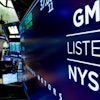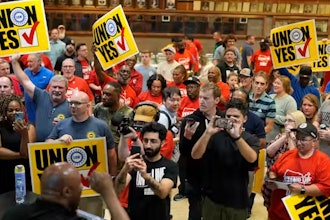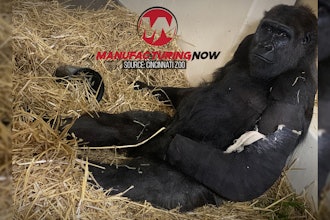By Lauren Kiesow, Associate Editor, Manufacturing.net
Slowly but surely all of the “mom and pop” manufacturing facilities are closing. From sardine canneries in Maine to baking product suppliers in California, smaller plants are feeling the pressure from buyers who believe importing manufactured goods is more cost efficient. Losing industries has become fairly commonplace, especially in recent years, and some posit that when factories decline, so does innovation.
As stated in a recent New York Times article, James Jordan, president of the Interstate Maglev Project, believes that “as manufacturing’s presence -- and status -- shrinks in America, the odds of a Henry Ford or a Thomas Edison or a Steve Jobs appearing in the next generation are reduced.”
That’s a sobering thought, as our nation excelled because of innovation. These greats designed and developed tangible products that, in turn, generated a myriad of manufacturing jobs in brand new industries. Where would we be now if there had never been the Model-T or the incandescent light bulb? Perpetually riding ponies and using candles? Probably not. At some point the innovations would have been conceived, but possibly not by an American and not when they were.
In my opinion, this clearly isn’t a case of much ado about nothing. As noted in the Times, from manufacturing’s heyday in the summer of 1979 through last month, employment in this sector has fallen by 8.1 million, with most of that occurring in the last decade. With less manufacturing present, there are fewer people actively thinking about making and improving products.
Mark Zandi, a chief economist for Moody’s Analytics, believes that “a diminished manufacturing sector will undermine our economy.” I would argue that there’s no need for the future tense; it’s already undermined. Because so many industries turn to offshoring right out of the gate, the integrity of American manufacturing is automatically compromised.
In an attempt to encourage citizens, President Obama said in his State of the Union address that “[t]he first step in winning the future is encouraging American innovation… What we can do -- what America does better than anyone else -- is spark the creativity and imagination of our people.” Sounds good to me, but I’m curious as to how this is to be implemented. In troubling times it’s hard to boost morale and spur people to innovate their little hearts out. And with depleting manufacturing numbers, it seems all the more grim.
There’s clearly an imperative need to remain competitive in research and development, which ultimately means there’s a lot of work to do in order to reverse this brain drain. I’d hate to see our country fail to produce more great innovators and innovations just to save a buck or two.
Slowly but surely all of the “mom and pop” manufacturing facilities are closing. From sardine canneries in Maine to baking product suppliers in California, smaller plants are feeling the pressure from buyers who believe importing manufactured goods is more cost efficient. Losing industries has become fairly commonplace, especially in recent years, and some posit that when factories decline, so does innovation.
As stated in a recent New York Times article, James Jordan, president of the Interstate Maglev Project, believes that “as manufacturing’s presence -- and status -- shrinks in America, the odds of a Henry Ford or a Thomas Edison or a Steve Jobs appearing in the next generation are reduced.”
That’s a sobering thought, as our nation excelled because of innovation. These greats designed and developed tangible products that, in turn, generated a myriad of manufacturing jobs in brand new industries. Where would we be now if there had never been the Model-T or the incandescent light bulb? Perpetually riding ponies and using candles? Probably not. At some point the innovations would have been conceived, but possibly not by an American and not when they were.
In my opinion, this clearly isn’t a case of much ado about nothing. As noted in the Times, from manufacturing’s heyday in the summer of 1979 through last month, employment in this sector has fallen by 8.1 million, with most of that occurring in the last decade. With less manufacturing present, there are fewer people actively thinking about making and improving products.
Mark Zandi, a chief economist for Moody’s Analytics, believes that “a diminished manufacturing sector will undermine our economy.” I would argue that there’s no need for the future tense; it’s already undermined. Because so many industries turn to offshoring right out of the gate, the integrity of American manufacturing is automatically compromised.
In an attempt to encourage citizens, President Obama said in his State of the Union address that “[t]he first step in winning the future is encouraging American innovation… What we can do -- what America does better than anyone else -- is spark the creativity and imagination of our people.” Sounds good to me, but I’m curious as to how this is to be implemented. In troubling times it’s hard to boost morale and spur people to innovate their little hearts out. And with depleting manufacturing numbers, it seems all the more grim.
There’s clearly an imperative need to remain competitive in research and development, which ultimately means there’s a lot of work to do in order to reverse this brain drain. I’d hate to see our country fail to produce more great innovators and innovations just to save a buck or two.






















